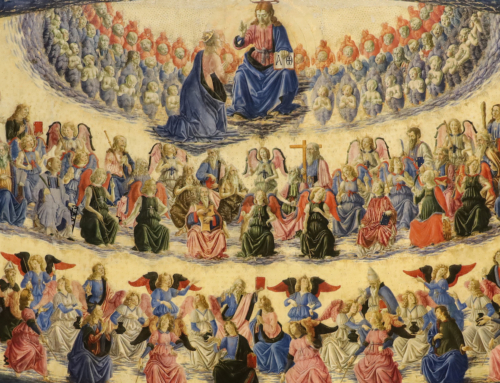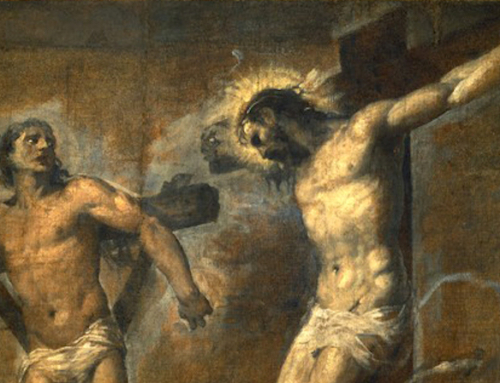If keys are missing in a Catholic house, prayers to St. Anthony are sure to be found. But for how long? Might this practice itself soon be lost?
Catholic culture includes many delightful elements, like St. Anthony’s special knack for finding things, but “cultural Catholicism” usually refers, rather disparagingly, to a zombie-like continuation of these accidental aspects of the faith while belief in essentials has been lost. Prayers for lost keys, fish fries, St. Francis lawn gnomes, and Easter breads are all excellent things, but they are trivial when compared with the Trinity, the Incarnation, the Cross and Resurrection, the coming of the Holy Spirit, and the Sacraments.
A branch cut off from the vine is sure to wither. So too a merely cultural Catholicism, which retains quaint garnishes without the meat, is doomed to fizzle out. Without a living faith in Jesus Christ, praying to St. Anthony for missing keys is destined to become either a superstition or a mere saying, and then be lost entirely.
Yet, a branch which remains on the vine should bear fruit. Although a merely cultural Catholicism is severely lacking, so too is a believing Catholicism which does not allow the faith to penetrate every aspect of life, producing a truly Catholic culture. The great truths of our Catholic faith cannot be limited to inhabit only a designated area of our lives, but they should illumine even life’s smallest details. As Archbishop Luis M. Martinez says in the opening pages of The Sanctifier:
“Life ought to be based on truth; or rather, it is truth itself that descends, so to speak, from the heights of the understanding to pour itself out over the affections, the works, and all the activity of man.”
God wants to entirely pervade and sanctify our lives, even in all their most trivial aspects. A true Catholic culture flows out of a community living in the all-encompassing grace of Jesus Christ, and this culture itself eloquently proclaims His Truth.
For example, take praying to St. Anthony for lost keys. This practice may seem trivial, but it teaches all-but-trivial truths. If we can pray about lost keys, we know that God’s loving concern for us cannot be abstract: God knows and loves us individually, even in our smallest difficulties. Further, consider what it means that we can pray to St. Anthony, a man like ourselves. Veneration of and prayer to the saints shows that sanctification cannot be simply a matter of imitating Jesus’s example. Nor can it be a mere legal fiction in which Jesus covers over and takes the beating for our flaws in order to sneak still-crummy sinners into heaven. Rather, saints are those who, beginning with baptism and flourishing with the nourishment and healing of the other sacraments, live the very life of Jesus and come to love with His own love. “It is no longer I who live, but Christ who lives in me” (Gal 2:20). As Martinez explains:
“Christian Life is the reproduction of Jesus in souls; and Perfection, the most faithful and perfect reproduction, consists in the transformation of souls into Jesus.”
Today we pray to St. Anthony, who especially shows forth our Lord’s concern for us even in the small annoyance of losing things. Let us ask him to help us find not only our keys, but also the key truths of our faith and the life which flows forth from and points to them. Let us ask St. Anthony to help us find anew the beauty of life lived with, in, and through Jesus Christ.
✠
Image: Wolfgang Moroder, Main Altar of Saint Antony church (public domain)







